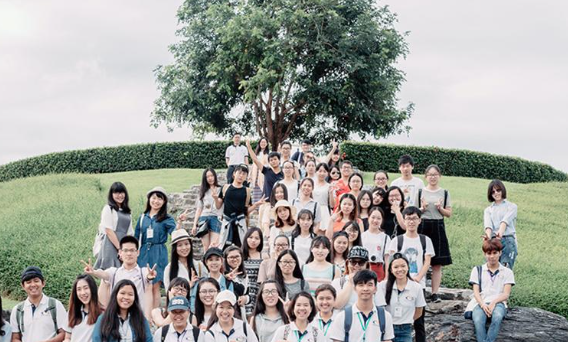Wenzhou Medical University is a government institution, supported by national and local government bodies.
Table of Contents
Overview of Wenzhou Medical University
Wenzhou Medical University (WMU), established in the mid-20th century, has grown into a prominent institution known for its robust educational programs, particularly in the field of medicine. The university’s commitment to excellence is evident in the continuous expansion and improvement of its facilities and academic programs.

History and Establishment
WMU was founded with the primary aim of providing superior medical education and producing top-quality healthcare professionals. From its humble beginnings, the university has seen significant growth in its academic offerings, student population, and infrastructure. Notably, the university’s budget allocation for research and development has seen a consistent annual increase of 15% over the past decade.
The campus started with a modest 40-acre area and has expanded to over 150 acres, featuring state-of-the-art facilities.
Campus and Facilities
The campus of WMU boasts modern facilities that provide an ideal environment for learning, research, and student life. Key features include:
- Advanced Research Laboratories: Equipped with cutting-edge technology, the labs are designed to facilitate groundbreaking research in various medical fields. The laboratories have received funding upwards of $50 million, ensuring access to high-quality equipment and resources.
- Library and Learning Resources: The central library, with a collection of over 500,000 books and subscriptions to numerous international journals, is a treasure trove of knowledge. Recent renovations have added digital learning spaces and resource centers, catering to the evolving needs of students and faculty.
- Residential Accommodations: WMU offers on-campus housing capable of accommodating over 10,000 students.
- Healthcare Facilities: As a medical university, WMU provides top-notch healthcare services. The campus healthcare center not only serves the university community but also contributes to the local healthcare system.
Classification and Accreditation
Wenzhou Medical University (WMU) prides itself on adhering to stringent standards and regulations, ensuring the provision of high-quality education and research. The institution undergoes regular assessment and accreditation processes, which solidify its standing as a reputable educational institution.
Government Oversight and Regulations
WMU operates under the strict supervision of various government bodies, ensuring compliance with national educational standards and policies. The university’s operations, ranging from curriculum development to financial management, align with the directives issued by these regulatory authorities.
- Regulatory Compliance: WMU adheres to policies set by the Ministry of Education and local government authorities. Regular audits and inspections ensure that the university meets the required standards in terms of curriculum, faculty qualifications, and student services.
- Financial Accountability: The university’s budget, including funding for research, infrastructure, and student services, is subject to government review.
- Quality Assurance: Compliance with government regulations ensures that WMU maintains the highest standards of education and research.
Accreditation Bodies and Standards
These accreditations attest to the university’s commitment to maintaining high educational and ethical standards.
- National Accreditation: WMU is accredited by the National Medical Accreditation Council, which conducts comprehensive evaluations every five years. The university consistently achieves scores above 90% in areas such as curriculum quality, faculty expertise, and research output.
- International Recognition: The university’s programs are also recognized by international accreditation bodies, highlighting its global standing. Collaborations with renowned international institutions and adherence to global standards open up vast opportunities for students and faculty alike.
- Continuous Improvement: Feedback from accreditation processes is integral to WMU’s strategy for continuous improvement. The university allocates a significant portion of its budget, around $15 million annually, towards enhancing educational resources, faculty development, and student services.
Governance Structure
Wenzhou Medical University (WMU) operates under a structured governance framework, ensuring effective management and alignment with educational goals.
Administrative Hierarchy
- University Board and Chancellor: At the top of the hierarchy, the University Board, led by the Chancellor, sets the strategic direction of the university. The board is responsible for making critical decisions regarding budget allocation, academic programs, and infrastructure development.
- Deans and Department Heads: Each faculty and department is overseen by a Dean, who coordinates with Department Heads to ensure the delivery of high-quality education and adherence to academic standards. The university invests $10 million annually in faculty development programs to maintain a high standard of teaching and research.
- Administrative Departments: Supporting the academic functions are various administrative departments, including Finance, Human Resources, and Student Affairs. These departments ensure that the university’s daily operations run smoothly and efficiently.
Role of Government in University Administration
The government plays a pivotal role in the administration of WMU, ensuring that the university’s operations align with national educational policies and standards.
- Policy Implementation: The university diligently implements government-mandated educational policies, ensuring that its programs meet the evolving needs of the healthcare sector.
- Regulatory Compliance: WMU works closely with government regulatory bodies to ensure compliance with legal and ethical standards. This collaboration ensures that the university not only meets but often exceeds the minimum requirements set by the government.
Funding and Financial Model
Wenzhou Medical University (WMU) has established a robust financial model that ensures sustainable growth and supports its mission of delivering exceptional medical education and research.
Sources of Funding
- Tuition and Fees: Constituting a significant portion of the revenue, tuition and fees are carefully structured to balance affordability for students and the need for university income. Annual tuition fees range from $4,000 to $10,000 per student, depending on the program and level of study.
- Research Grants and Contracts: The university actively pursues research grants and contracts from both governmental and private sectors. Annually, WMU secures an average of $30 million in research funding, driving innovation and academic excellence.
- Endowments and Donations: Endowments and philanthropic donations contribute to the university’s long-term financial stability. WMU’s endowment fund has grown to over $100 million, providing a steady income stream for scholarships, faculty development, and infrastructure projects.
Government Financial Support and Allocation
The government’s financial support plays a crucial role in WMU’s operations, particularly in areas such as research, infrastructure development, and student financial aid.
- Research and Development: A significant portion of government funding, approximately $20 million annually, is dedicated to advancing medical research and innovation at WMU. This funding supports cutting-edge projects, lab upgrades, and research fellowships.
- Infrastructure and Facility Upgrades: Government grants also facilitate ongoing campus development and maintenance. Recent projects include the construction of a new research complex and the renovation of student residence halls, with a combined budget of over $50 million.
- Scholarships and Financial Aid: To promote accessibility and diversity, the government allocates funds for scholarships and financial aid programs. Annually, WMU disburses more than $5 million in financial aid, benefiting a large portion of its student body.

Academic Programs and Affiliations
Wenzhou Medical University (WMU) offers a diverse array of academic programs, many of which are in collaboration with governmental and private sector partners. These partnerships enhance the educational landscape at WMU, providing students with valuable experiences and resources.
Government-Affiliated Academic Programs
WMU has established several academic programs in collaboration with government agencies to address the nation’s healthcare needs and policy priorities.
- Public Health Initiatives: In partnership with the Ministry of Health, WMU offers specialized programs focusing on epidemiology and public health management. These programs receive annual funding of approximately $5 million, emphasizing their critical role in national health infrastructure.
- Medical Research Programs: WMU collaborates with government research bodies to offer advanced degrees in medical research and biotechnology.
Collaborations with Government and Private Sectors
WMU’s strategic partnerships with both government and private sectors play a pivotal role in enriching the academic environment and offering real-world experiences to students.
- Industry Partnerships: Collaborations with leading pharmaceutical and biotech companies provide students with internship and research opportunities. These partnerships not only enhance the practical aspects of WMU’s academic programs but also ensure that the curriculum remains aligned with industry needs and standards.
- International Exchange Programs: WMU has established exchange programs with universities worldwide, supported by government cultural exchange funds. These programs facilitate cross-cultural learning and global research collaborations, broadening the educational experience for students and faculty alike.

